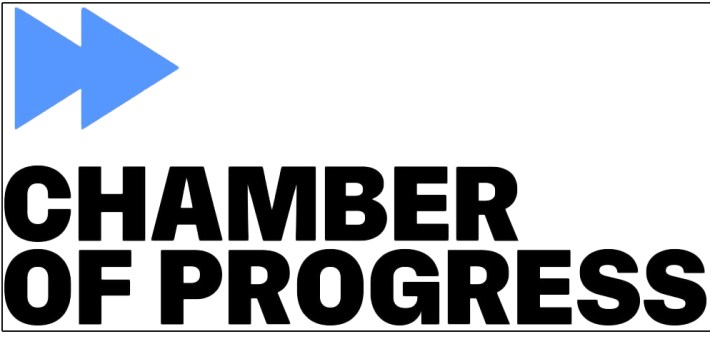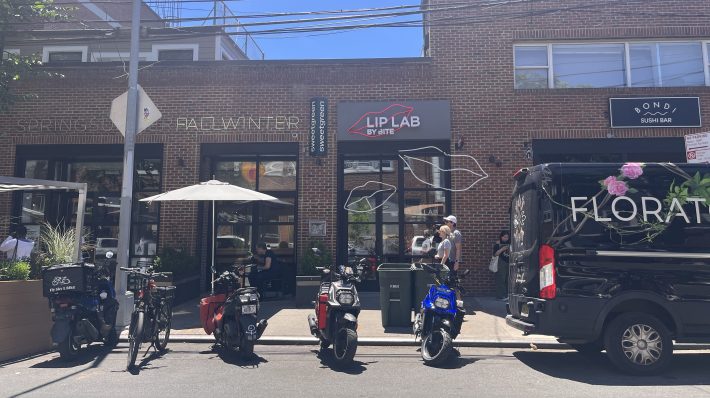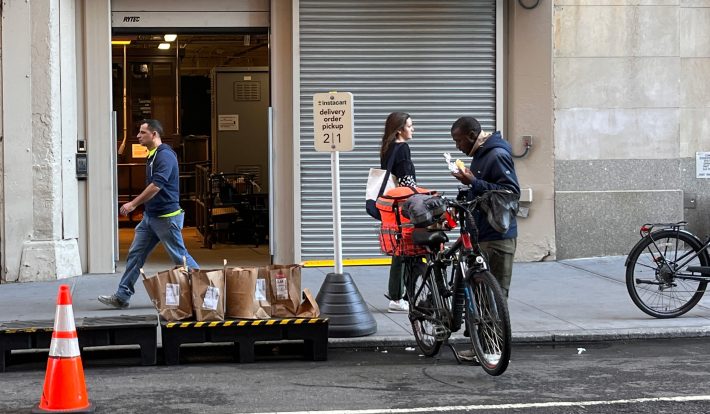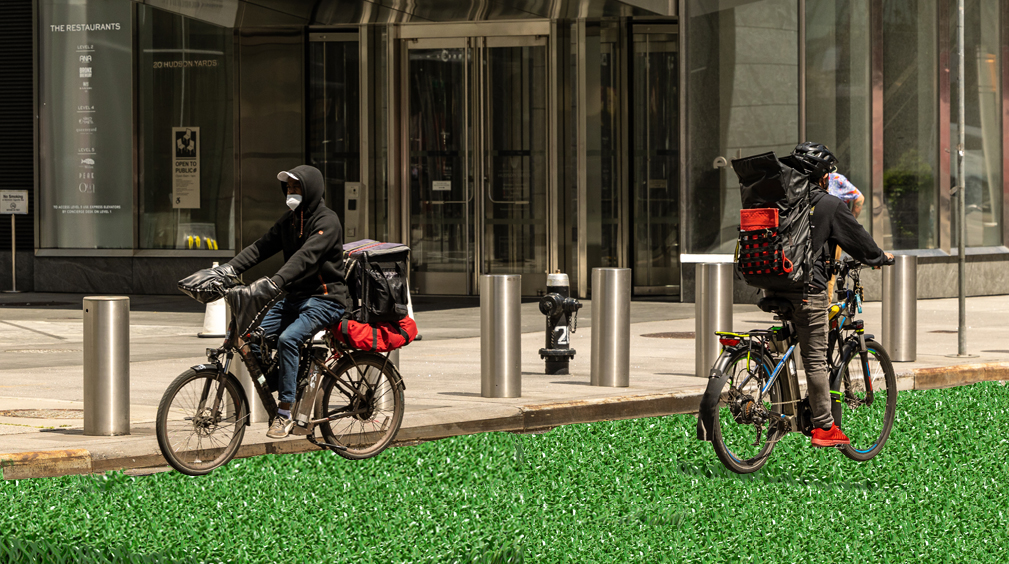Now that's rich.

Instacart and other multi-million-dollar grocery delivery corporations are warning City Council members that extending the existing delivery worker minimum wage to grocery delivery workers will end up hurting another set of working poor: people experiencing food insecurity.
But the message, presented at a City Council hearing on Monday, wasn't put forward by the companies themselves, but by a representative from Chamber of Progress, which is funded by delivery apps and other tech companies, who testified that two new City Council bills to expand minimum wage protections to grocery delivery would "raise prices to consumers."
"Increasing prices of groceries would harm those who are food insecure or those living with lack of access to fresh healthy food,” Ruth Whittaker, the group’s director of civic innovation policy, told the Council's Consumer and Worker Protection Committee.
She disclosed some of her group's funding sources — Uber, Lyft, Grubhub, and DoorDash, specifically — but not what the Center for Profess is: a billionaire-funded group that claims to be “a center-left tech industry coalition promoting technology’s progressive future” in a way that helps "economically disadvantaged people." Such groups are often derided as "Astro-Turf" organizations, as opposed to "grassroots" ones.
Even as it opposes the minimum wage for 20,000 grocery app workers who currently don't qualify for it due to a loophole in the law, as reported by Streetsblog.
The Council bills in question would not directly raise the price of groceries, nor would they force the delivery companies to change their fee structure. As a result, Council Member Sandy Nurse (D-Brooklyn) mocked the claim that paying workers a fair wage would harm low income New Yorkers.
“The idea that providing fair, living wages for workers harms food insecure New Yorkers is an absurd and thoughtless statement backed by zero evidence,” Nurse told Streetsblog after the hearing on her bill. “Using apps like Instacart to purchase groceries and have them delivered is a consumer option. Grocery delivery workers deserve a fair wage and good working conditions. Attempts to distract the public from focusing on that goal with false, irrational statements is shameful and quite frankly, silly."
A second bill, introduced by Council Member Jennifer Gutiérrez (D-Brooklyn), would require the city to expand the current minimum wage beyond mere grocery app workers, but to all “contracted delivery workers who deliver goods for a delivery service.” This would include workers for Relay, who were cut out of the original law after a legal battle, and workers delivering other goods, like prescriptions for companies like Capsule.
The Chamber of Progress was the only group to testify against the bills. The Department of Consumer and Worker Protection, which upholds the current minimum wage, testified in favor, accompanied by representatives from Los Deliveristas Unidos, The National Employment Law Project, the Muslim Community Network, and the New York Immigration Coalition.
DCWP said that misinformation campaigns by the app-companies have been the hardest to overcome when enforcing the current minimum wage.
"The biggest challenge is countering the false narratives in the media put out by apps," Vilda Vera Mayuga, the commissioner of the Department of Consumer and Worker Protection.
She added her full-throated support for the bills.
“The [current minimum wage] law does not cover thousands of other workers classified by apps as independent contractors who perform deliveries of other goods, like groceries and household items, who lack employee benefits and who also bear the cost of the vehicles they need to conduct their work,” she said. “This package of bills would close that gap.”
Experts who worked on the original minimum wage said "divide-and-conquer" tactics are not new, and neither are groups like the Chamber of Progress, founded by lobbyist Adam Kovacevich. The group collected around $30 million from industry groups in 2022 and has lobbied against gig-worker pay standards across the country.
The main argument is that higher labor costs would be passed to consumers. But a recent city report revealed that when minimum pay was introduced, the apps absorb most of the cost and did not pass it along to their customers.
“[After the pay standard] the commissions that the companies received after they pay the workers went down a lot, without out increasing either the fees to restaurants or the prices to consumers that much," said James Parrott, the director of economic and fiscal policies at the Center for New York City Affairs at The New School, who consulted with the city on the landmark minimum pay law. "In essence, when pay goes up for drivers, that’s not paid for when passing on the cost to consumers, it's paid for by the companies accepting lower commissions that still make them very profitable.”

Advocates for Muslim immigrants said they'd heard from community members that Instacart workers want the same wage protections as other app workers.
"They are frustrated by the disparity in pay and protections for what is fundamentally the same work," said Husein Yatabarry, the executive director of the Muslim Community Network. "Whether delivering restaurant meals or groceries, these workers face the same challenges: long hours, dangerous conditions, and limited access to safety resources."

Full-time delivery workers are, on average, earning higher paychecks since the $20 minimum wage kicked in. But many complain of restricted access to the apps and lockouts. The problem, Parrot said, is that the app companies let too many workers sign up, creating a labor glut that allows the apps to then restrict access to the system, even though app companies can easily predict how many workers they actually need.
"The way to avert the lockout situation is to ensure that the number of delivery workers allowed on the platform doesn't exceed the extent of the market," said Parrott. "The companies have really good data, they're in a position to calibrate pretty exactly how many workers they need and yet they pay no attention to that and add as many people as they want. Then they're led to a situation where they lock workers out. In some cases workers blame this on the city, saying the law led them to be locked out."
The proposed bills do not include any direct regulation on how many workers app companies are allowed to let on the platform. If more companies are brought into the fold without addressing this problem the companies can continue to use it to divide workers and fight regulation.
"[The app companies] benefit from [the ability to let too many workers on], they encourage it, they exploit it. They use it at every opportunity to try and undermine every attempt to regulate their behavior. It's divide and conquer, it's pitting the workers against the city. It's the oldest game in the employer's book. The Council should be able to see this as a problem and force the companies to limit the amount of workers they allow on the platform," said Parrott.






